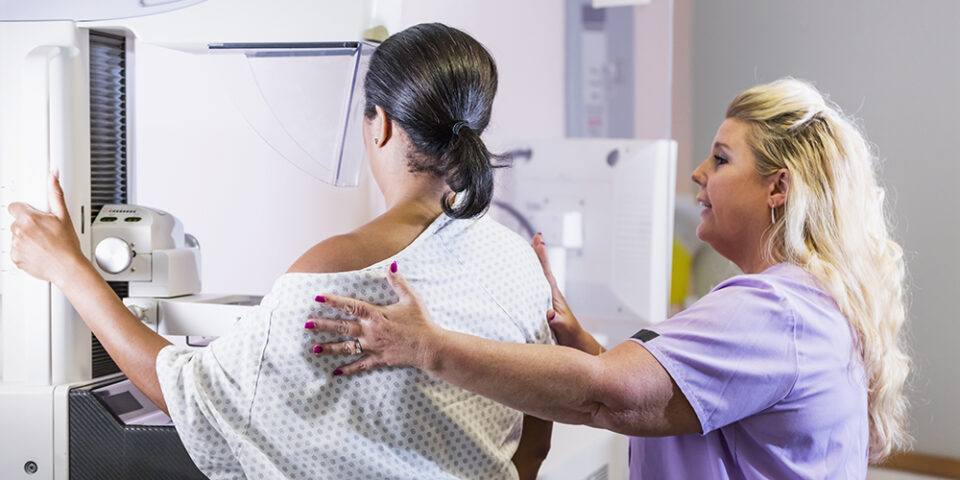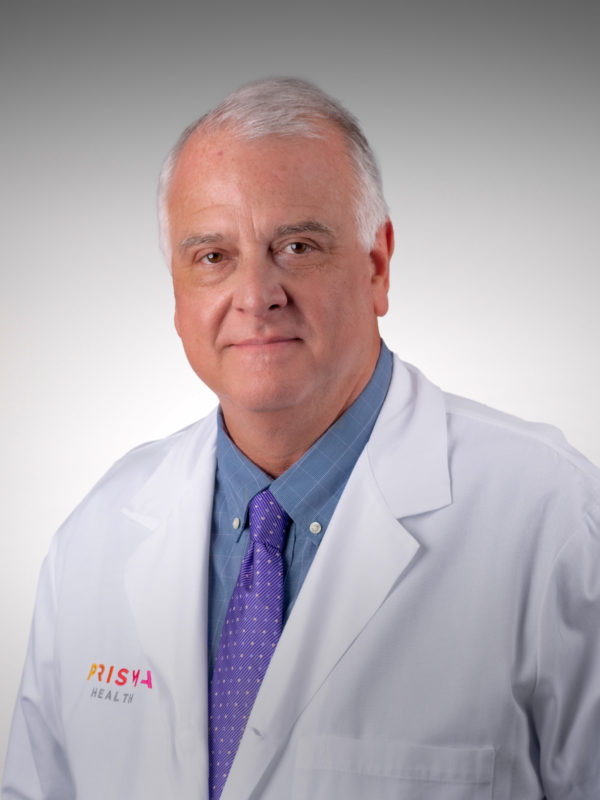What is the difference between a screening mammogram and a diagnostic mammogram?
Mammograms are a common part of life for many women, who receive one each year as part of basic recommended healthcare screenings. Some women have been scheduled for their regular screening mammogram, only to be called back for a diagnostic mammogram later. What is the difference between a screening mammogram and a diagnostic mammogram? Radiologist Douglas Bull, MD, explained how they each play a part in early diagnosis for breast cancer.
Why do women need a screening mammogram?
“A screening mammogram is designed to be quick, low-cost and effective,” said Dr. Bull. “We get a limited history and views of each breast and really get a look at the results afterward, instead of during the mammogram itself.”
With so many scheduled mammograms, this method helps manage a large number of screenings without causing individuals to wait a long time. Plus, it allows radiologists and physicians time to look at the results without feeling harried or hurried, so they can pay close attention to details that might otherwise be missed.
Dr. Bull recommends women use the same medical provider for mammograms each year, to have the most accurate possible history when looking for changes over time.
How is a diagnostic mammogram different than a screening mammogram?
“First off, a diagnostic mammogram is likely going to take longer,” said Dr. Bull. “It includes all those same views as a screening mammogram, but it may also involve taking extra images to get a closer look at specific areas of concern. In addition, in a diagnostic mammogram setting, we will usually discuss the results with the patient at the time of the visit.”
While screenings are recommended for all women regardless of whether they’re at increased risk, diagnostic mammograms get a more focused look at specific issues. Women who have reported things like unusual nipple discharge, a lump in their breast, thickening or changes to the breast skin or other common symptoms of breast cancer will often be scheduled for a diagnostic mammogram to get the most detailed picture possible.
Does being told I need a diagnostic mammogram mean I have cancer?
“Let me be very clear. Being scheduled for a diagnostic mammogram is not a diagnosis of cancer or of any other health condition,” said Dr. Bull.
Results often return with no significant further action needed, although inconclusive screenings may require a closer look. Mammograms are part of the standard for diagnosing breast cancer but being told the physician would like a more detailed image doesn’t mean that anything is necessarily wrong.
Screening mammograms are recommended annually for all women who have a normal risk for developing breast cancer beginning at age 40. Those with elevated risk factors may be scheduled for diagnostic mammograms or breast MRIs.
Schedule your mammogram
To accommodate your busy schedule, many of our Breast Health Center locations offer early morning and late afternoon hours for breast imaging procedures. No physician referral is needed for those 40 and older.
Schedule a Mammogram

